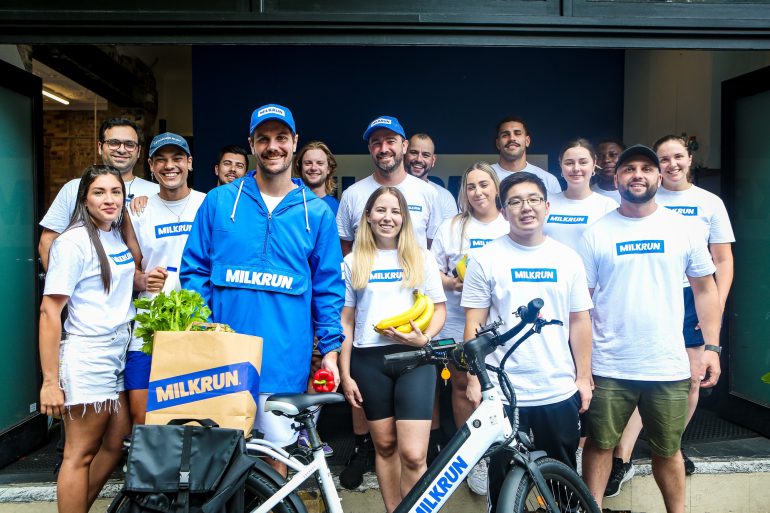$86m burned as grocery delivery business fails
12 Apr 2023 - Performance

Rapid grocery delivery business MILKRUN has collapsed putting more than 400 people out of work and writing off $86 million in venture capital investment.
After the Easter break, staff received an email from founder Dany Milham that said: “I’m writing to let you know that we have made the difficult decision to wind down the business, and as a result, MILKRUN will cease trading this Friday.”
The demise of MILKRUN followed the closure of similar businesses Voly, Send and Quicko.
MILKRUN was backed by AirTree Ventures and the investment vehicles of Atlassian Founders Mike Cannon-Brookes and Scott Farquhar. But the biggest loser is clearly US hedge fund Tiger Global which included MILKRUN in a series of substantial venture capital investments made in 2021 and 2022.
Prior to MILKRUN, Milham had been a successful co-founder of online order mattress company Koala. His concept for MILKRUN as a 10-minute inner city groceries delivery business raised $11 million in June 2021. The business launched in Sydney in September that year, headquartered in the inner-Sydney suburb of Surry Hills.
In early 2022, Tiger Global led MILKRUN’s $75 million Series A round which was backed by seed investors AirTree, Cannon-Brookes’ Grok Ventures and Farquhar’s Skip Capital.
At that time, MILKRUN’s bike delivery services were growing strongly although the company was a long way from profitability. Later in 2022, The Sydney Morning Herald and The Age reported that, in a June pitch to potential investors, the company had conceded it was losing as much as $13 an order in some suburbs and was outlaying as much as $57 a time to sign up new customers.
Around the same time MILKRUN was reducing expenditure on overtime and casual employment.
In January, Milham denied claims investors were looking for a buyer or strategic partner for the business. In February the business announced it was cutting staff by 20% with Milham saying there was still a 12-month runway to profitability.
The last mile delivery model was pioneered overseas by companies such as Getir which was launched in Turkey; in 2021 the model clearly had potential in inner-city areas in Australia.
Rapidly changing economic conditions, with potential customers quickly becoming more careful with their spending, sounded the death knell for fast delivery grocery deliveries here. Meanwhile, the market was getting tougher. The major supermarkets, Coles and Woolworths, had been working to improve their direct delivery services – Woolworths partnered with Uber to deliver popular items in under an hour. Capacity for MILKRUN and its competitors to gain adequate market share appeared to be shrinking. But, most significantly, investors were no longer prepared to back a business model which was not getting closer to a break-even point.
According to Milham, MILKRUN is closing while it still has adequate cash to meet its commitments to suppliers and to pay redundancy packages to its more than 400 employees.
“We’ve always been committed to doing things the right way, and winding down the business while we still have a sufficient cash balance enables us to ensure our people and suppliers are paid in full,” Milham wrote in his email.
Image: Dany Milham with MILKRUN staff in Surry Hills, Sydney.

